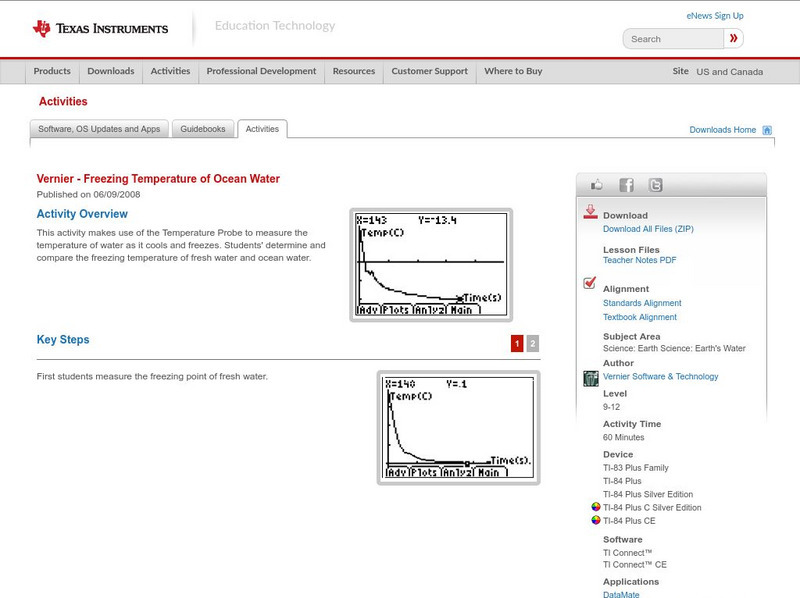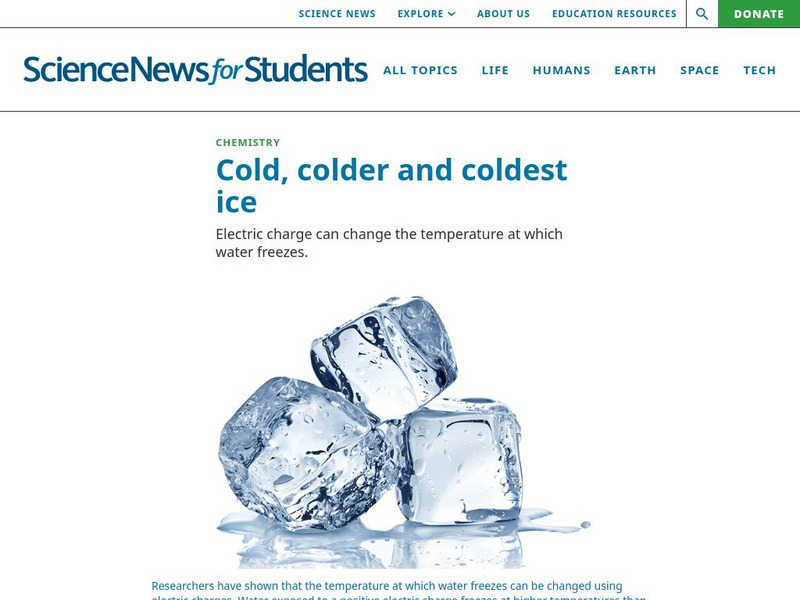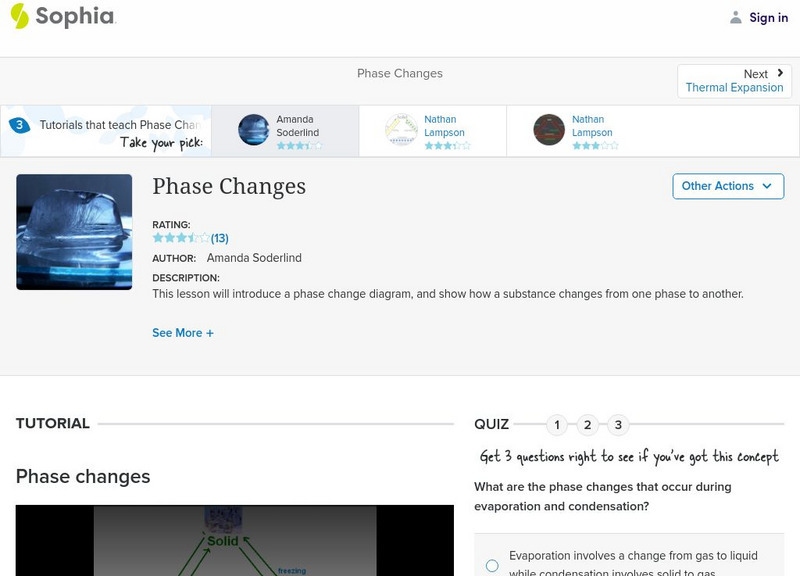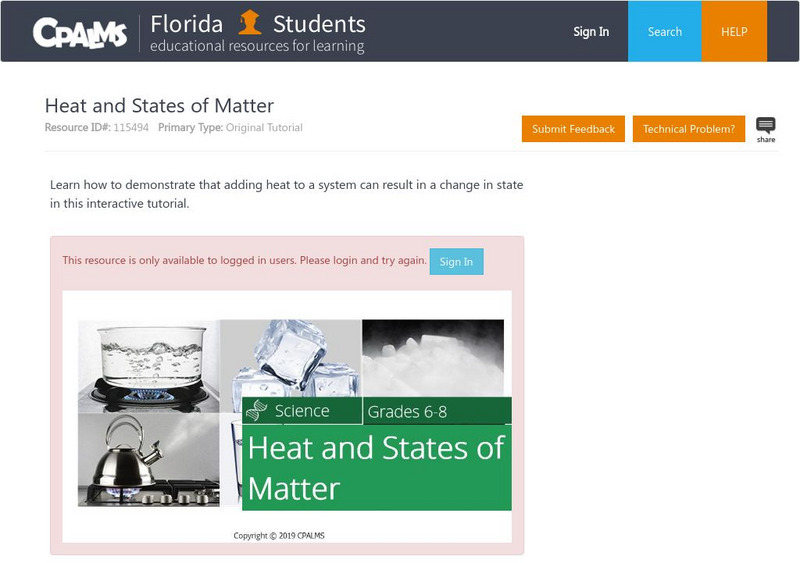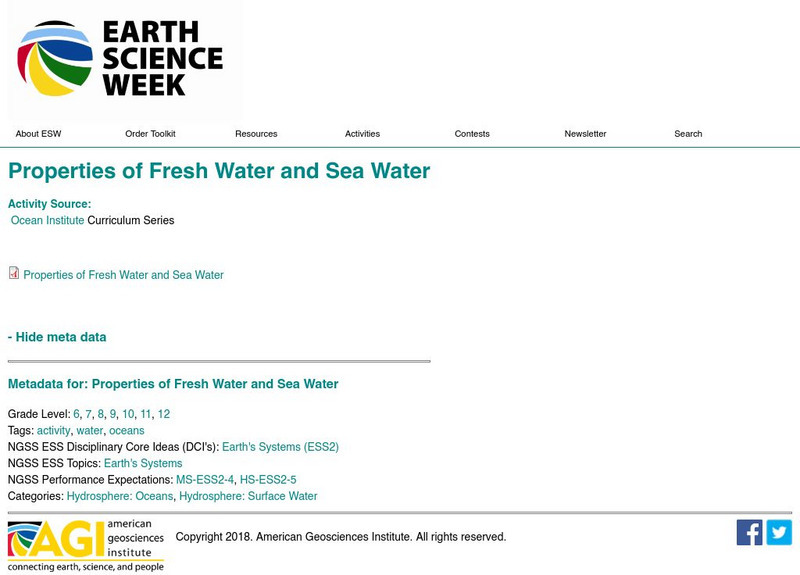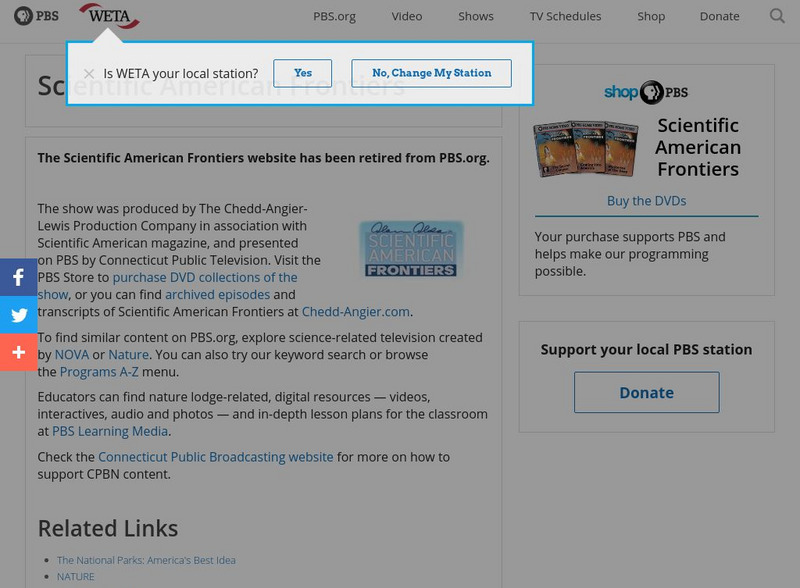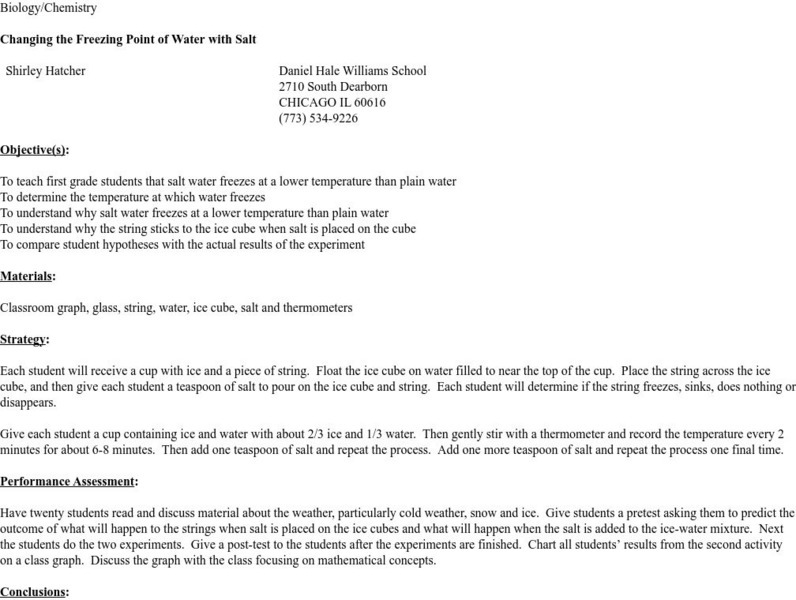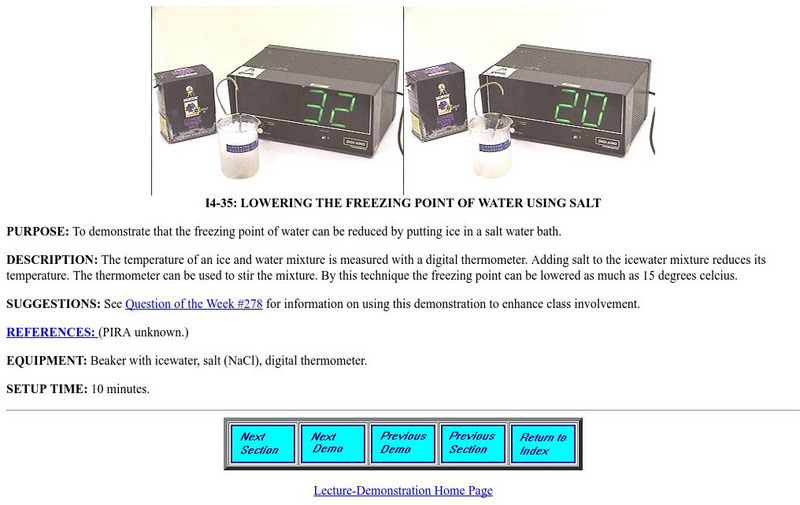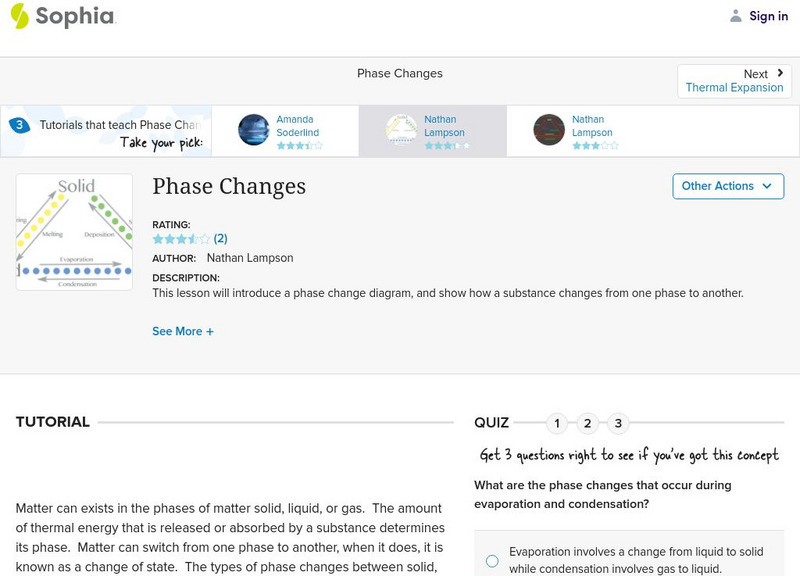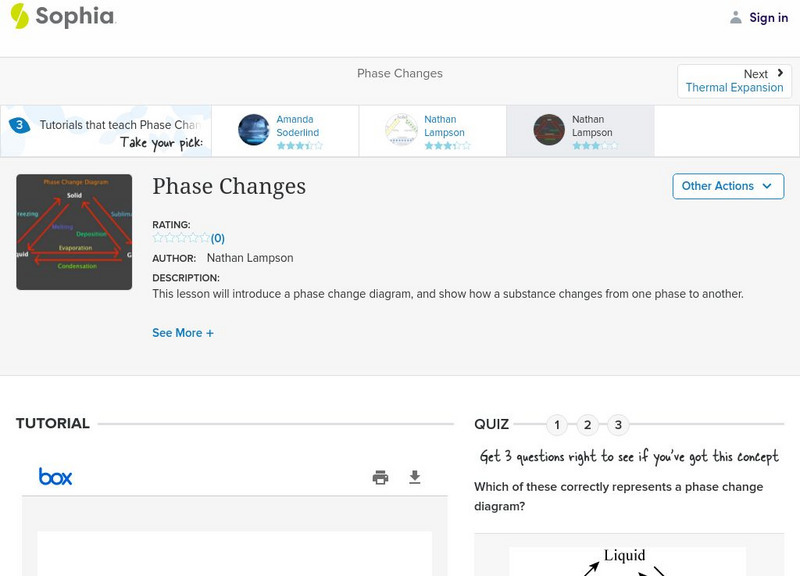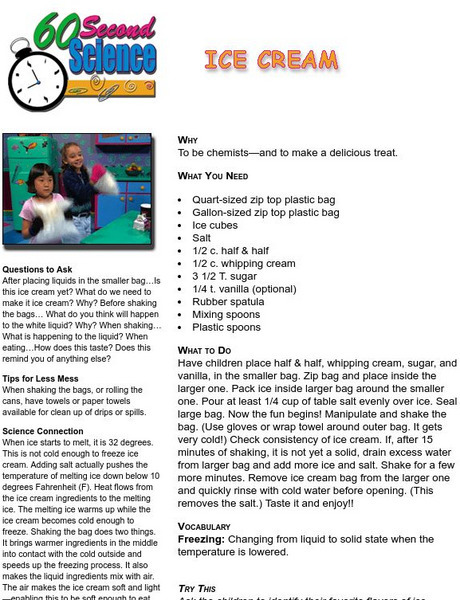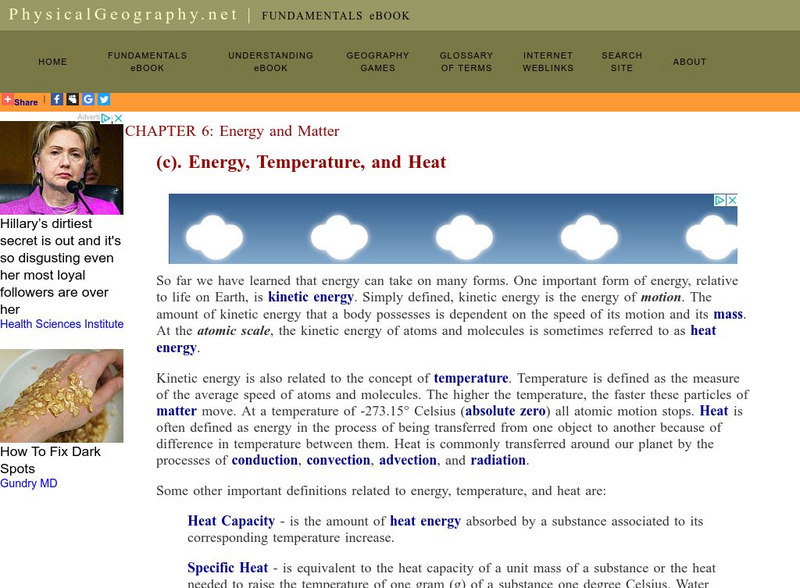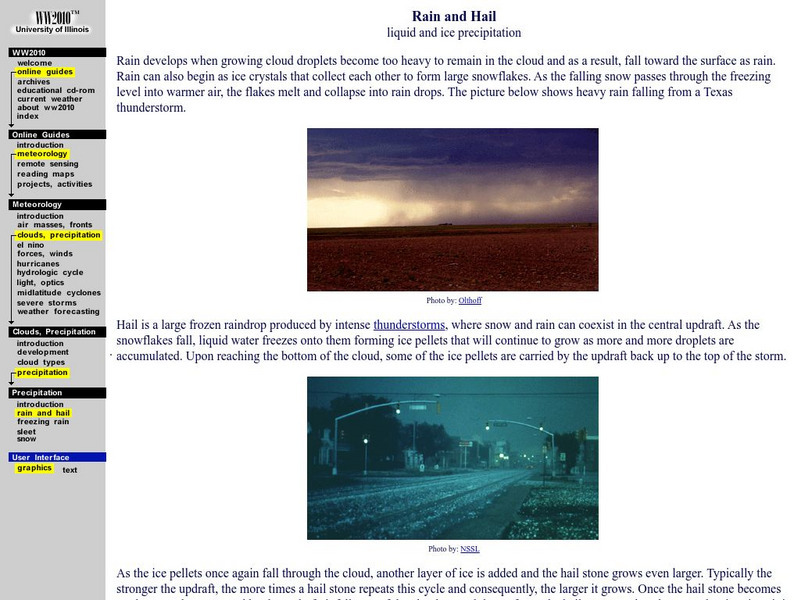USA Today
Usa Today: How Winter Storms Bring Rain, Ice and Snow
A great diagram of precipitation and what forms at different degrees. A short description on the formation of rain, snow, and sleet.
Texas Instruments
Texas Instruments: Freezing Temperature of Ocean Water
This activity makes use of the Temperature Probe to measure the temperature of water as it cools and freezes. Students' determine and compare the freezing temperature of fresh water and ocean water.
Society for Science and the Public
Science News for Students: Cold, Colder and Coldest Ice
Describes research into the freezing point of water and how scientists have frozen it at different temperatures, depending on the electric charge.
Curated OER
Cbc Kids: Frigid Facts on Being Out in the Cold!
Why do we shiver? What is frostbite? Find out the COLD hard facts here.
Museum of Science
Museum of Science and Industry: Online Science: Make Ice Cream
Follow these step-by-step instructions to make homemade ice cream. Learn the chemistry and physics behind this summertime treat.
Sophia Learning
Sophia: Phase Changes: Lesson 1
This lesson will introduce a phase change diagram, and show how a substance changes from one phase to another. It is 1 of 3 in the series titled "Phase Changes."
E-learning for Kids
E Learning for Kids: Science: Loch Ness: What Happens When Solids and Liquids Are Heated or Cooled?
Students will look at what happens to different types of matter when they have a change of state.
E-learning for Kids
E Learning for Kids: Science: Atlantic Ocean: What Is the Water Cycle?
Explains the three states of water, how the water cycle works, and the role of temperature. Includes a fun fact quiz.
CPALMS
Florida State University Cpalms: Florida Students: Heat and States of Matter
Learn how states of matter can change as heat is added to a system.
CK-12 Foundation
Ck 12: Physical Science: Freezing
[Free Registration/Login may be required to access all resource tools.] Explains what happens to matter when it freezes and the definition of freezing point.
American Geosciences Institute
American Geosciences Institute: Earth Science Week: Properties of Fresh Water and Sea Water
Students set up three demonstrations to observe the properties of water. They explore the boiling point of water, the freezing point of water, and the ability of water to store heat.
American Chemical Society
Middle School Chemistry: Changing State Freezing
Discover how freezing works, when the change of state moves from liquid to solid.
Children's Discovery Museum
Children's Discovery Museum of San Jose: Ice Exploration
Provides fun ideas for exploring how to transform ice using shapes, light, and color.
PBS
Pbs Teachers: Going to Extremes: Frozen Alive
Explore survival strategies of animals in freezing climates. Investigate the role of glucose (sugar solution) when used as an antifreeze and the relationship between temperature and metabolism.
Science and Mathematics Initiative for Learning Enhancement (SMILE)
Smile: Changing the Freezing Point of Water With Salt
This lesson plan teaches first grade students basic chemistry and physics principles--that saltwater freezes at a lower temperature that plain water.
University of Maryland
University of Maryland: Regelation: Ice Under Pressure
A page from the University of Maryland Physics Lecture Demonstration Facility. Provides directions for a teacher demonstration on the phenomenon of regelation. Shows apparatus and set-up; provides suggestions. Easily adaptable as a...
University of Maryland
Lowering the Freezing Point of Water Using Salt
A page from the University of Maryland Physics Lecture Demonstration Facility. Provides directions for a teacher demonstration of the effect of an ionic solute upon the freezing point of water. Shows apparatus and set-up; provides...
PBS
Pbs Teachers: Rising Ice Experiment
Observe how ice and salt crystals interact by using salt to help adhere a string to the top of an ice cube in a glass of water, then lift the cube out of the water.
Sophia Learning
Sophia: Phase Changes: Lesson 3
This lesson will introduce a phase change diagram, and show how a substance changes from one phase to another. It is 3 of 3 in the series titled "Phase Changes."
Sophia Learning
Sophia: Phase Changes: Lesson 2
This lesson will introduce a phase change diagram, and show how a substance changes from one phase to another. It is 2 of 3 in the series titled "Phase Changes."
Other
60 Second Science: Making Ice Cream
Discover how liquids can change to solids while making ice cream.
Other
Fund. Of Phys. Geography/energy, Temperature, and Heat
A page describing (in part) the distinction between energy, temperature and heat. Includes a graphic illustrating the quantity of energy needed to transform water between various states. Methods of thermal energy transfer (convection,...
National Earth Science Teachers Association
Windows to the Universe: Hail
Read a paragraph about the formation of hail.
University of Illinois
University of Illinois Urbana Champaign: Hail and Rain
Find out how hail is produced. You will discover the relationship between hail and thunderstorms.



